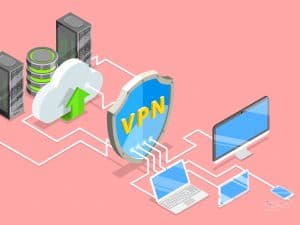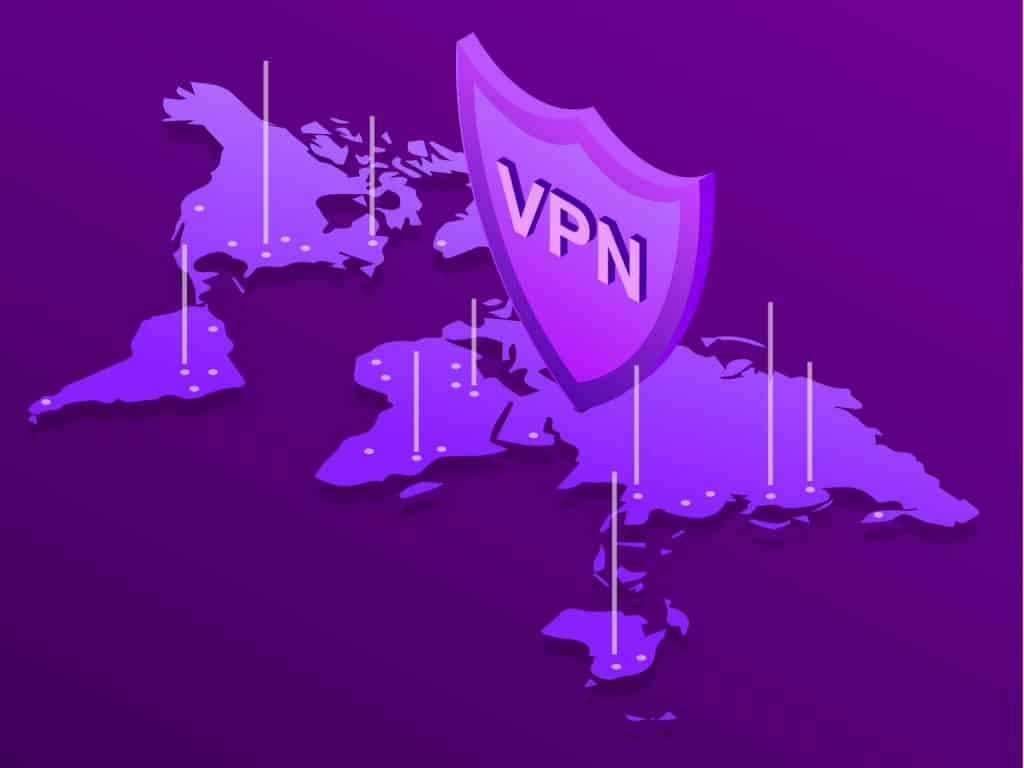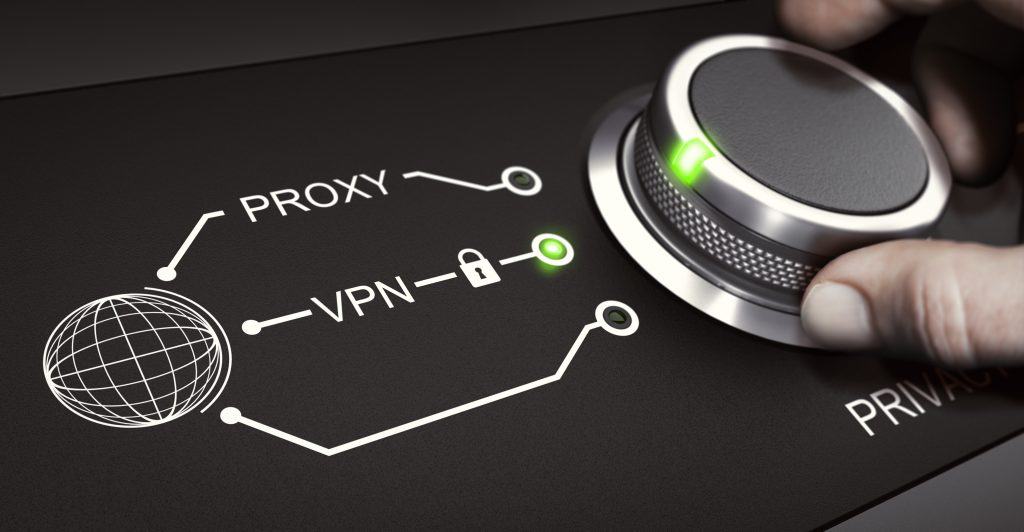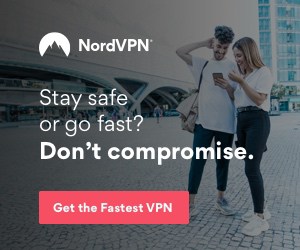The Pros and Cons of Using a VPN
- By Douglas Moore
- July 7, 2020
Disclosure: Some links in this guide are affiliate links. We may get paid if you buy something or take an action after clicking one of these links, at no additional cost to you. It’s how we fund the work that it takes for us to create and maintain these guides.

Still, if you’re new to VPNs you may still be on the fence about whether you actually need one. You may also be wondering what the advantages of using a VPN are, as well as the drawbacks and dangers. In this article, we’ll try to provide you with a balanced picture of VPN pros and cons, what it can give you and what it can take from you.
The Pros of Using a VPN:
Let’s first look at the pros of using a VPN. As we already mentioned, some nice perks are privacy, security, and the bypassing of geo-restrictions. But what exactly do these mean? We’ll delve into these and several more advantages that VPNs offer to clients.
1. Privacy
Did you know what all your online activities, including which websites you visit, for how long, your comments on social media, your shopping habits, your search history, and more is available to third parties, such as your ISP (internet service provider), marketing and government agencies, and the websites you visit? (Yes, even when you browse in Incognito.) ISPs have been known to sell customer data to marketers so that they can target you with pesky ads. Websites force you to accept cookies, which then track your activities off their site as well.
VPNs help you hide your private online activities from all these third parties. When you connect a device to a VPN, your data traffic gets rerouted through VPN servers which hide your activities from ISPs and also assign you a different IP address. You can regularly change your IP address and change server countries and locations so that your activities and identity will remain elusive to third parties.
In other words, you’ll seem to be someone from a different country accessing content from a different IP address. This means that marketers, for instance, won’t be able to track you and target tailored ads your way.
While a lot of the time people don’t think that they’re “doing anything bad” that would require online anonymity, keep in mind all the ways that your private browsing history can be turned against you, and not only in marketing schemes. You have a chronic illness and are online browsing for solutions – would you want your insurance company to have access to this information? Nope, you would not.
2. Security
Although VPNs aren’t foolproof, they can help you improve the security of your data and connected devices. The best VPNs employ 256-bit military-grade encryption to hide sensitive information from online threats like hackers. The danger of getting hacked – and hackers can steal personal data like banking and credit card information as well as spread malware to your devices – is especially prevalent in public locations. Coffee shops and airports are teeming with unsafe public WiFi networks, of which some are indeed set up by hackers, and are only masking as networks belonging to a certain establishment.
Connecting your smartphone, laptop, or tablet to a VPN will protect you from these online threats. In addition to encrypting your data, VPNs offer automatic WiFi protection which will come in handy in these scenarios.
3. Access to Geo-Restricted Content (Streaming Services)
There are mainly two reasons why some online content may be geo-restricted, or geo-blocked. The first one is censorship, and the second one is copyright laws. In the case of the former, some countries with more authoritarian regimes block online content on a country-wide scale to prevent the citizens of that country from accessing those websites. (In Turkey, for instance, YouTube and Wikipedia were blocked for years.) In the case of the latter, copyright regulations prevent users from other geographic regions to gain access to some streaming services. For instance, BBC iPlayer is only available in the UK. Plus, some Netflix libraries are only available in some countries – the US Netflix library which is arguably the richest, is only available in the US.
So, if you find yourself in a situation where for one reason or another you can’t access a website or a streaming service, a VPN can help you. VPNs reroute you to a server in another country and give you a fake IP located in that country, so you would be able to access content which is available in that region. So for instance, if you want to watch BBC iPlayer, all you have to do is connect to a UK server. Geo-blocking is a thing of the past!
4. Prevent Bandwidth Throttling
ISPs may sometimes intentionally slow down your internet connection. This is called bandwidth throttling. ISPs sometimes do this when you game, stream or download, especially if you’re torrenting (p2p sharing). If you’ve noticed a slower connection when you engage in any of these activities, there’s a good chance that your ISP is limiting your internet usage.
A VPN will prevent bandwidth throttling. As a VPN hides your online activities, your ISP won’t be able to tell what you’re spending your data on. All they’ll know for sure is how much data you’re spending. They won’t be able to tell that you’re torrenting, so they won’t have any reason to slow down your connection.
A little bonus on the subject of torrenting: you know how when you torrent peers can see your IP? Well with a VPN, they won’t be able to!
5. Avoid Online Price Discrimination and Price Jumps
I hate, hate, hate the manipulative, evil method in which a lot of airline companies sell tickets, torturing the last penny out of an uncertain customer. Has this scenario ever happened to you? You visit an airline website, look at the prices for tickets on certain days. You say, I’ll think about it, check out some other airlines. You’re back in a few hours or a few days, and the price has somehow jumped. Isn’t the flight in another 3 months? How can the price change so quickly? And then the next day, there will be a new increase, until you’re either too afraid that the price will further increase and buy the – now more expensive – ticket, or give up on your trip altogether.
This is not a coincidence, folks. Airlines and some online retailers track your activity on their website based on your IP address, and intentionally increase the price on your successive visits. Another way in which online price discrimination occurs is based on geographic region. Apparently, it’s not the case that citizens of all countries deserve the same price opportunities. You may be seeing one price with an IP in the US, and a completely different price from an IP based in India.
A VPN can help you avoid this nonsense. As they hide your actual IP location, they also hide the actual geographic region where you’re located. Plus, you can switch IPs and servers between two occasions on which you check the price for tickets on certain dates, so that the price doesn’t purposefully increase.
Keep in mind that to avoid price discrimination using a VPN isn’t enough – you should also clear your cookies because websites can use those to track your device anyway.
The Cons of Using a VPN:
Now that we’ve praised VPNs, let’s look at what’s not so great about them.
1. Slower Internet Speeds
Even the best VPNs that employ various speed-boosting technologies may end up slowing down your internet speed, even a little. There are two main reasons for this. Firstly, the encryption protocols that VPNs employ to secure the privacy of your data take a bit of time. Depending on which VPN you choose, you may be able to alternate between VPN encryption protocols depending on the task. So if you need speed, you can switch to a less secure but faster security protocol.
The other reason VPNs slow down your internet speed is that when you are connected to a physically distant server, for instance, one in a different country, the packets of data take longer to travel. The closest remedy for this is trying to connect to a server that’s nearer to your location.
2. Cost
If you decide to use a VPN, you should definitely steer clear of free VPN providers. Because, as you know, there’s no such thing as a free lunch. Firstly, free VPNs don’t use strong security protocols, which may expose your devices to the vulnerability of hacker attacks and data leaks. Secondly, free VPNs can easily sell your data or access to your internet connection to third parties, and a lot of the time they do.
This means that you should get a paid, premium VPN. Good VPNs will cost you anywhere from about $4 to about $14 per month, based on what sort of a payment plan you opt for. The plans that offer the best value are those where you pay for at least a year in advance. When you pay for one, or two, or three years in advance the monthly cost is on the lower end of the price range, while the opposite is true of monthly, quarterly, and 6-month payments.
3. You’ll Have to Trust Your VPN Provider
Your VPN will keep your data private from third parties, but technically, your data would still be visible to them. Good VPNs usually have a no-logs, or zero-logs policy, which means that they don’t keep any logs of your online activities on their servers. Some may keep non-identifying information, like the times you’re online. But in any case, you’d have to trust your VPN to regularly clear their logs and not share your data with anyone else.
Another potential problem here is jurisdiction. Some VPNs that are based in Four Eyes Countries may be forced to disclose your online logs by government subpoena. If your VPN is headquartered in one of these countries, like the US, you should at least make sure that they don’t keep any logs and regularly delete the data from their servers.
4. Legal Trouble
First off – don’t worry, VPNs are legal in most countries. However, there are several countries, including China, Turkey, Iraq, Russia, Iran, and Belarus to name a few, where VPNs are banned. So if you’re thinking of using a VPN in one of those countries, you would technically be breaking the law. The best advice we can give here is to use a VPN that uses obfuscation technology, or a cloak, which hides the fact that you’re using a VPN from your ISP.
Another potential legal problem can arise from using a VPN to access geo-restricted streaming services. If you access BBC iPlayer from abroad, for example, and the server administration team realize that you’re using a VPN, your account may get suspended. So it’s not like you’ll get in any serious trouble, just a bit of a hassle until you find someone else whose details you can abuse to open a new account.
Conclusion
There are lots of advantages you can get from using a VPN. Privacy, security, and access to geo-restricted content are the most popular ones that people talk about, but avoiding things like online price discrimination and ISP throttling are excellent added extras.
Still, VPNs aren’t perfect, and they’re not completely foolproof, either. As we said, you have to trust your VPN, because sometimes even the best VPN providers can get hacked. Plus, you’ll have an additional monthly cost to consider.
Still, we’d say that VPNs are well worth it. Online privacy is a rare gem, and VPNs are here to help us get it.
View Related Articles

How to Change Your IP Location with a VPN
A lot of users rely on their trusty VPN to give them access to geo-restricted streaming services and websites. You can’t access the Netflix US library? No problem, a VPN can help you do just that. Let’s take a look at why you would change your IP to a different location using a VPN and how to do it.

Proxy vs. VPN – What is the Difference?
When it comes to choosing between a proxy and a VPN, it can be difficult to decide which is best for you – they both have their pros and cons.

Benefits of Using a VPN for Gaming
Well, VPNs have also gained some renown for gaming purposes. Initially, a VPN may not sound like the ideal solution for gaming, as due to its encryption protocols and remote servers, a VPN can actually slow down your internet speed.
